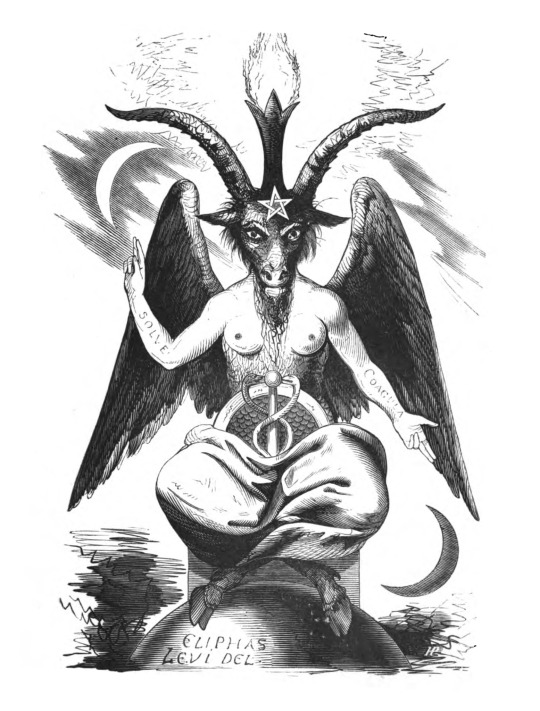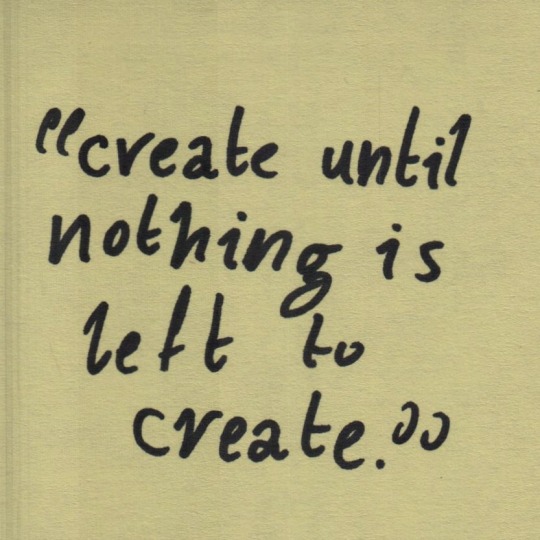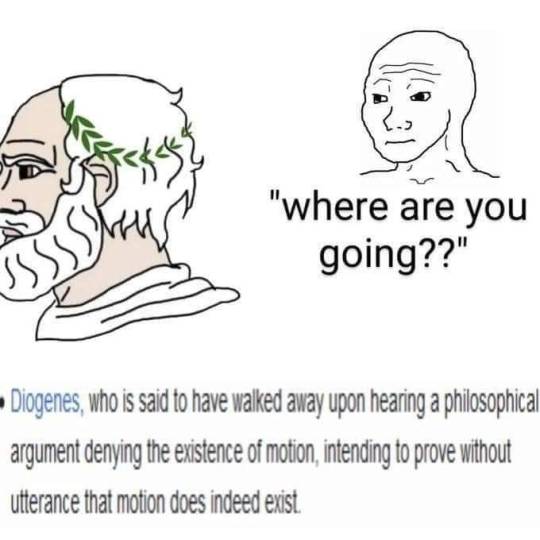#philosophies
Text

#excerpts#life#philosophies#philosophy#post it#post it art#post it doodles#post it note#post it philosophies#post its#motivation#life advice#light yellow
27 notes
·
View notes
Text
there was a certain beautiful emotion
interlaced into the veins of red,
written into the running flow that bleeds,
one with the backdrop of every scene that takes place,
taking heart in the certainty’s meaning,
and it is sadness in stone,
rock solid, gray, cloudy like the looming overhead,
haunting your every evening,
when the sun goes down,
you know what to turn to,
to whom exactly we repent.
#sadness#imagery#scenery#gray#grey#weather#clouds#looming overhead#religion#repent#sin#pray#poem#poetry#beautiful#sinning#sorry#depress#loneliness#temporary#philosophies#psychology#principles#true
8 notes
·
View notes
Text
more random excerpts from lord byron’s diaries (here’s the first post)
“When one subtracts from life infancy (which is vegetation), — sleep, eating, and swilling — buttoning and unbuttoning — how much remains of downright existence? The summer of a dormouse.”
“If this had been begun ten years ago, and faithfully kept!!! — heigho! there are too many things I wish never to have remembered, as it is.“
“Dined — (damn this pen!)”
“Oh! there is an organ playing in the street — a waltz, too! I must leave off to listen. They are playing a waltz, which I have heard ten thousand times at the balls in London, between 1812 and 1815. Music is a strange thing.”
“How strange are our thoughts, &c. &c. &c.“
“It has been said that the immortality of the soul is a ‘grand peut-être’ — but still it is a grand one. Every body clings to it — the stupidest, and dullest, and wickedest of human bipeds is still persuaded that he is immortal.”
“I wish one was — I don’t know what I wish. It is odd I never set myself seriously to wishing without attaining it — and repenting.”
“Came home — my head aches — plenty of news, but too tiresome to set down. I have neither read, nor written, nor thought, but led a purely animal life all day. I mean to try to write a page or two before I go to bed. But, as Squire Sullen says, ‘My head aches consumedly: Scrub, bring me a dram!’ Drank some Imola wine, and some punch.”
“Read — rode — fired pistols — returned — dined — wrote — visited — heard music — talked nonsense — and went home. Wrote part of a Tragedy — advance in Act 1st with ‘all deliberate speed.’ Bought a blanket.“
“The only pleasure of fame is that it paves the way to pleasure; and the more intellectual our pleasure, the better for the pleasure and for us too.”
“I flew into a paroxysm of rage, which almost made me faint. I have not been well ever since. I deserve it for being such a fool.”
“Lewis [..] seems out of humour with every thing. What can be the matter? he is not married — has he lost his own mistress, or any other person’s wife?”
“Scrawled this additional page of life’s log-book. One day more is over of it, and of me; — but ‘which is best, life or death, the gods only know,’ as Socrates said to his judges, on the breaking up of the tribunal.”
“The respectable Job says, ‘Why should a living man complain?’ I really don’t know, except it be that a dead man can’t; and he, the said patriarch, did complain, nevertheless, till his friends were tired and his wife recommended that pious prologue, ‘Curse — and die;’ the only time, I suppose, when but little relief is to be found in swearing.”
“The lapse of ages changes all things — time — language — the earth — the bounds of the sea — the stars of the sky, and every thing ‘about, around, and underneath’ man, except man himself, who has always been, and always will be, an unlucky rascal. The infinite variety of lives conduct but to death, and the infinity of wishes lead but to disappointment. All the discoveries which have yet been made have multiplied little but existence.”
“At five-and-twenty, when the better part of life is over, one should be something; — and what am I? nothing but five-and-twenty — and the odd months. What have I seen? the same man all over the world — ay, and woman too.”
[talking about his experience at a circus] “There was a ‘hippopotamus,’ like Lord Liverpool in the face; and the ‘Ursine Sloth’ had the very voice and manner of my valet.”
[after seeing Shakespeare’s Antony and Cleopatra] “Cleopatra strikes me as the epitome of her sex — fond, lively, sad, tender, teasing, humble, haughty, beautiful, the devil! — coquettish to the last, as well with the ‘asp’ as with Antony.”
[on German] “Of the real language I know absolutely nothing, — except oaths learnt from postilions and officers in a squabble. I can swear in German potently, when I like — ‘Sacrament — Verfluchter — Hundsfott’ — and so forth; but I have little of their less energetic conversation. I like, however, their women (I was once so desperately in love with a German woman, Constance).”
“Dined — news come — the Powers mean to war with the peoples. The intelligence seems positive — let it be so — they will be beaten in the end. The king-times are fast finishing. There will be blood shed like water, and tears like mist; but the peoples will conquer in the end. I shall not live to see it, but I foresee it.”
“Why, at the very height of desire and human pleasure, — worldly, social, amorous, ambitious, or even avaricious, — does there mingle a certain sense of doubt and sorrow — a fear of what is to come — a doubt of what is — a retrospect to the past, leading to a prognostication of the future. (The best of Prophets of the future is the Past.) Why is this? or these? — I know not, except that on a pinnacle we are most susceptible of giddiness, and that we never fear falling except from a precipice — the higher, the more awful, and the more sublime; and, therefore, I am not sure that Fear is not a pleasurable sensation; at least, Hope is; and what Hope is there without a deep leaven of Fear? and what sensation is so delightful as Hope? and, if it were not for Hope, where would the Future be? — in hell. It is useless to say where the Present is, for most of us know; and as for the Past, what predominates in memory? — Hope baffled. Ergo, in all human affairs, it is Hope — Hope — Hope.”
[written when he was a chief in the Carbonari mob during the (ultimately failed) Italian Revolution] “To-day I have had no communication with my Carbonari cronies; but, in the mean time, my lower apartments are full of their bayonets, fusils, cartridges, and what not. I suppose that they consider me as a depôt, to be sacrificed, in case of accidents. It is no great matter, supposing that Italy could be liberated, who or what is sacrificed. It is a grand object — the very poetry of politics. Only think — a free Italy!!!”
“I carried Teresa the Italian translation of Grillparzer’s Sappho, which she promises to read. She quarrelled with me, because I said that love was not the loftiest theme for true tragedy; and, having the advantage of her native language, and natural female eloquence, she overcame my fewer arguments. I believe she was right. I must put more love into ‘Sardanapalus’ than I intended.”
“Wrote some more of the tragedy. Took a glass of grog. After having ridden hard in rainy weather, and scribbled, and scribbled again, the spirits (at least mine) need a little exhilaration, and I don’t like laudanum now as I used to do. So I have mixed a glass of strong waters and single waters, which I shall now proceed to empty. Therefore and thereunto I conclude this day’s diary.”
“I have been turning over different Lives of the Poets. I rarely read their works, unless an occasional flight over the classical ones, Pope, Dryden, Johnson, Gray, and those who approach them nearest (I leave the rant of the rest to the cant of the day), and — I had made several reflections, but I feel sleepy, and may as well go to bed.”
#(dj khaled voice) another one!#lord byron#literature#diaries#writing#regency era#georgian era#byron#byronic#poet#poetry#philosophies#english literature#scottish literature#19th century#early 19th century#1800s#dark academia#aesthetic#diary#romanticism#romantic poets#romantic authors
43 notes
·
View notes
Text
I'm currently in the process of writing a book about my experience on the "otherside", and my ensuing philosophy and outlook when I returned.
I'll attach here some select quotes from what is, for the moment, a disjointed brainstorming session.
"The most fascinating book to me then, and now as an adult with a better understanding of the context and history behind it, was Genesis. It’s a creation myth: a bastard child that mirrors its mother, the Babylonian Enuma Elish. It follows many of the tropes that various other creation myths of the Fertile Crescent brought forth.
In reading the first few verses, it is notable to me that God’s creation is an act of turning ultimate simplicity into ultimate complexity; of division. Every act of creation is an act of seperating one into two, from the skies and the oceans, to the lands and the seas, to the days and the nights, to sun and the stars, to the fish and birds, etc. Every act of creation is one of an inherent binary, to define or create one thing, first its opposite must be defined. It follows then that if creation is an act of division, then destruction is an act of unity.
Another point of note in Genesis is the story of the serpent tempting Eve. To eat of the Tree of the Knowledge of Good and Evil is to become aware of the intrinsic binary; the division needed to create. What is most notable to me as an adult interpreting this book in a new light, is that it isn’t stated, not once, that the serpent lied to or deceived Eve. Instead, God confirmed the serpent’s testimony by not only cursing the serpent against Woman, but also by banishing mankind from the Garden in an effort to prevent them from eating of the Tree of Life as well; so that they could not gain everlasting life upon their newfound ability to create, and truly become like Him.
It is my theory, that if you were to read Genesis from the perspective of those who spoke it; nomadic Semites, it’s clear that civilization was the Original Sin. At the time, the division between peoples was largely between the nomadic and the settled. Invasions and battles were commonplace between this dichotomy in the Agricultural Revolution. From a nomad’s perspective, Genesis reads clearly as a warning against civilization. Once men begin to create the walls of their cities, and have to work in fields for the fruit that should’ve been given freely, suddenly man turns on man, Cain kills Abel.
Civilization is, in essence, mankind’s Magnum Opus. It is a reflection of our collective egos, our fear of suffering and need to escape the natural order of the world and the suffering that is inherent to division, and thus creation.
Once the Amoritic peoples settled in Babylon, and Babylon went from being a lowly Sumerian city-state to being its own proper kingdom, a particular man of note came into power: King Hammurabi. With King Hammurabi in power, an interesting text was publicized and largely popularized. I believe that the king himself commissioned its release, though that is up for debate in the anthropological community. It was titled the Enuma Elish, and I for one, believe it to be the most impactful piece of literature ever produced, and we see its stark effects to this very day. If you have not read it, I highly recommend that you do. In summary, it was the origin for the trope that consumed the world; child killing parent, and the deification of the child. In this story, a god named Marduk, or if given his proper title, Bel-Marduk, defeated the primordial gods Tiamat and Apsu. He was then granted kingship among the gods. This story is reflected well in Greek mythology, with Zeus defeating Cronos, and being hailed among the gods.
Many interesting things happened in Babylon’s culture with the release of this text, as well as in the wider Mesopotamian and Mediterranean regions. In Babylon, Bel-Marduk superceded the fertility goddess Ishtar as the patron god of the city. The city went from relying on the archetypal feminine intuition of priests and priestesses, who interpreted signs of the highly unstable gods, to being run by the archetypal logic of men and kings.
The release of the Enuma Elish, which demonized the unpredictable forces of nature as “chaos” and deified the secondary gods as harbingers of “order”, made a major shift in society, from matriarchy to patriarchy. In essence, we began vilifying the natural order of the world and deifying our own egos, our own ideas of how and why the world should operate; thus, civilization.
I think the original cities reflected our egos well, with large, ornate walls to defend and protect people from outside influence. The cultures within reflected that which people could collectively agree upon, and which objectively worthless material had arbitrary value – silk, gold, gems: useless outside of their walls, but suddenly priceless. Suddenly, we as a species went from worshipping primary constructs to deifying secondary and tertiary constructs. We went from praising the primordial fundamentals of nature to looking towards gods of constructs such as masonry, shepherding, etc. A notable god of this sort was Yahweh, a god of metallurgy. With the release of a single text, we lost sight of what holds true objective value, and the question of value became human-centric; what has value to us and us alone? Despite the divinity of life, we separated ourselves from the world, and placed value in our own creations.
As a separate thought, per this rough draft, Yahweh being synchratized with El in Canaan by Yahwehists, is of extreme note. I think there is substantial symbolism there. Yahweh, a god of metallurgy; of war and suffering. What is it that a metallurgist does? He places impure material into a crucible, then heats it into dividing purities from impurities, and by repeating this cycle, he turns a simple stone into strong and resiliant bronze. A god of metallurgy, is in essence, a god of alchemical transmutation, and a god of value in a Bronze Age society.
I think this deification of Yahweh by the Hebrews reflects the essence of existence well; and even reflects the Hindu constructs of Samsara and Moksha. Life itself is growth and change; matter in motion. Suffering is the aforementioned fire to the crucible; the catalyst. Put into metaphorical terms, Yahweh is the alchemist and we are his material, and throughout the aeons, throughout repeated cycles of suffering, repeated separation and unification, life and death, a purified, powerful, and resiliant product is produced; the philosopher’s stone. In this sense, think of the fundamental law of alchemy, which is etched into Baphomet’s forearms, “Solve et Coagula”, Solution and Coagulation."

"I had this thought some time ago, and this draft seems the perfect spot to preserve it.
If God is pure white light, Satan is the material; the prism through which the light divides into infinite variation. Satan is everything that makes you, you; and them, them. Satan is the timespace between you and every blade of grass.
In many cases, I would define our post-modern idea of Satan as simply timespace. In Western Mysticism, Satan is defined as the Self, the ego. Personally, I see that as just a symptom of Satan’s greater role.
In Greece, Cronos was demonized, and in Rome, it was Saturn who was vilified and first created the idea of a Satan or devil that is inherently separate to God. Prior to Roman Catholicism, the Jewish idea of Satan was not separate to God, but rather seen as any number of things that opposed God’s order. There was no singular, defined Devil.
Cronos and Saturn in their respective mythologies were gods of time. On this basis, I see our modern idea of Satan being a deciever, Bel’ial being the Demon of Lies, as timespace being illusory. Timespace is the essence of the cycle we find ourselves in, the underlying substance of suffering.
Satan is the essence of the infinite diversity and awe-inspiring variation we find ourselves in. He is what makes me separate from the very keys I type on; the space between every word, sentence, and paragraph.
Satan is the personification and demonization of complexity, while God is the personification and deification of simplicity. I for one, as a pantheist, consider these highly abstract concepts of “God” and “Satan” as essentially two sides of the same coin. They are two faces of the same head. I worship in my own reverence the All, or the equalization of division and unification, life and death, fear and love, matter and spirit. When I am asked what it means to be a pantheistic Satanist, my response is always the same: it means to see the Self in the All, and the All in the Self. In other words, I consider myself being separate from you, or the very technology that I filter my thoughts through, as being inherently illusory and worthless. The truth is that there is nothing that separates me from the stars over my head aside from my personal perception of spacetime.
You can consider it in this sense – the Universe, or whatever you wish to call it is, objectively, a massive soup of information. We as individuals can do our best to translate this soup with the tools we’ve been granted; our senses and perception that have been evolved specifically for the means of maintaining division and individuality. But what is in front of us; what we see, feel, hear, are all constructs of our mind – our best attempt at understanding this incomprehensible soup. But at the end of the day, at the end of the cycle, we are not separate from said soup, and we never were. It is a dream-state that we find ourselves in, a false belief that we perpetuate that I am not simply the same universal and mathematical information as a simple stone or dose of water.
This soup is also entirely undefined. It’s us who divides and defines everything, our own minds and egos acting as filters, that tell us a rock is separate from a stream, and that the inanimate and animate are not the same thing. We have a term for everything, and the further we get into definition, the more complex the language becomes."

"I have personally been heavily drawn to Western Mystical practices such as Hermeticism and Kabbalah, solely because these practices put my ideas into consumable terms. But Western and Eastern practices are the same essence, passed through the filter of culture. The fundamentals; the truisms, lessons, goals are the same. They are only different in form and practice. Judaism and Hinduism carry far more commonality than expected once one can see past literal dogmatism."


"In my current form of spirituality, I have divided Satan into two aspects, and consider his essence multifaceted. I have divided him between masculine and feminine archetypes, and work with each in accordance to my needs and introspection.
I have termed Satan as both the primary Daemon of the Dead Sea Scrolls, Bel’ial, and the modernized thelemic concept of the divine feminine, Babalon. I see these as the quintessential dichotomy of existence; the ebb and flow, push and pull, fear and love, give and take. I have conceptualized these two archetypes as the basis of holding on and letting go, be it of material, people, or life. True fear is to hold on in desperation, true love is letting go in faith. Put simply, when your only options left are fight or flight, choose acceptance.
The Beast and the Harlot, Binah and Chokmah, Adam and Eve, Saturn and Venus, Space and Time, it does not matter what names you give to the essence of division, it matters only how you manage to unify them."
"I believe, in my misanthropy, that human intelligence and an increase in cognition is not the blessing of the “wise man”, rather, it is the curse of a foolish species. Due in large part to our complex and nuanced neurology, we seek in a very simple natural state, complexity and nuance. We seek to stuff every minute detail of our world into tiny, well-defined boxes, and when we are out of boxes, we only need to create more. We have, over the course of our cognitive dominion, found an immense number of tiny boxes of nuance and definition, of which was once an ultimately simple existence, and with which we have created our civilizations; definitions may vary, and so too do cultures.
We have taken this awe-inspiring limitless and incomprehensible plane that we find ourselves on, and limited it; made it consumable for our own cognitive pleasure. We have invented fluid, ever-evolving languages, maths, sciences, etc to aid ourselves in mastering a world that only ever wished to provide.
In our grandeur we have culturally deified figureheads such as Neil DeGrasse Tyson and Carl Sagan as genius men with the capacity to reign in on what is beyond the layman, but they are in their own right, extremely limited. They have tried only to further the fruitless aims of mankind; of distinguishing the truth from the lie, of once more dividing what was always whole.
I care little for people in this current state of my life, let alone for secondary and tertiary constructs such as morality and money. Humanity has become largely enslaved by cultures; the boxes with which they are accustomed to agree with by means of influence and social pressures. There is no such division between Good and Evil, Rich and Poor – only an illusion, a prison of our own design."

#philosophy#philosophies#metaphysics#metaphysical#occultism#occult#writing#books#near death experience#baphomet#babalon#belial#theistic satanism#satanism#satan#kabbalah#kabbalistic#qabalah#qabalistic#qabbalah
88 notes
·
View notes
Text
Day number one of me still sad about Sabito's death: Headcanon
I had an ephifany while reading the samurais code of honor Bushido, which wasn't really the samurai code of honor(there where a lot and varied) because bushido was born in the edo period (from neo confusianism texts.) But it was still a fun read since it was popular in the meiji period.
Hmm Meiji.
Oh boy did my mind went instantly to kimetsu because the Taisho is riiiight around the corner.
And then when I read about the whole "A samurai must die in an honorable death!" I was like... "Wait. You know who else is manly and has died honorably? Sabito!"
It'd be fun to think about Sabito being a samurai's son though.
#you can correct me if you wish about bushido because i had to divide them into two terms#the bushido popularized in meiji and born in edo which i am talking about now#and then term bushido that is used as an overarching term for all codes#practices#philosophies#and principles of a samurai
2 notes
·
View notes
Text
i am not trying to be marketable
i am not trying to appeal to all audiences
i am not trying to make myself palatable
i cannot please anybody but myself
i am not creating for anybody but myself
i am making the art i want to make because i want to make it
#daily creative affirmations that i keep reminding myself of#actually these are probably hourly affirmations#on writing#on art#in general#writing#art#personal ramblings#philosophies#i guess#my philosophies#affirmations#creative affirmations#important#reminder#remember
50 notes
·
View notes
Text
it's so so so crazy to me that some people really "believe" in existentialism. i am very good at philosophy because i know that jean-paul sartre was a stinky, mean poopypants. honestly, i think that absurdism is way way better because it's like basically the opposite. friedrich nietze was also p cool i guess. sartre needs to go learn about absurdism because i think he would really like it. please sartre if you seee this go to the wikipedia page or something. anyways post over. like and subscribe. see you next time gamers!
#philosophy#friedrich nietzsche#jean paul sartre#existentialism#absurdism#absurdist#interlocutor#ethics#morality#reason#liberal arts#philosophies
7 notes
·
View notes
Text
The 'Good ' Person
Again, with a personal rant.
We reside in a society that has elevated the expectations and standards to an impossible level, and so has the pressure come down upon each and every individual, in some way or the other.
Such is the pressure of being the 'good' person everyone should look up to. I guess this might also be partly a reason for the emergence of the Anti-Hero trope. Or the sudden outburst against the perfect hero. Even Aristotle discussed why everything is wrong with a 'Perfect Tragic' hero and why it would not work in his essay 'Poetics'.
But I guess we have not learnt much beyond the theatre regarding what is wrong with having a perfect hero. The thing is, the more we chase 'perfectionism', the more unaccepting we become of others' flaws. Human beings are made out of flaws and experiences. there would be no experience at all if there is no bumps in one's character.
This attitude of not being able to accept the imperfections of a person that people might have idealised earlier is what makes the infamous 'Cancel Culture' so toxic. I agree, that there have been instances when the Cancel Culture has served justice, in a way, but the fact is, this is a heavily toxic trend.
The fact is, Cancel Culture has arisen because people have become increasingly unable to accept their own flaws and imperfections, and in a way, they are the victims of society. However, they too, have become the ones to keep the cycle going.
It is very important for us to accept that the perception of a 'good person' is very much subjective. You can be an ideal person in someone's eyes and a complete antagonist to the other. The pressure of being the 'good person' has often, directly, or indirectly, promoted a people-pleasing behaviour. And if not all, most people already know how disastrous that can be.
It has become, thus, increasingly difficult to self-reflect and be honest within ourselves. But I believe that it is necessary, it is very much essential for us to be aware of ourselves and accept that we are not perfect, and so is not the person we are passing by. Every person has their own pace of growth, individual experience and aims, ways to self-reflect and level of self awareness and emotional maturity.
It is ironic how we all speak of the age of acceptance yet have so little to accept, we filter things to acceptance, and bend our judgement to our favour. In reality, this constant pressure of being the 'good person' has turned us all into hypocrites.
Again, this is a personal opinion and my perception of society. Everyone is free to agree to disagree, having individual opinions is our right, and I am not here to impose mine, but to share.
#spilled thoughts#personal rants#poetry#writers#philosophies#personal rant'#thoughts#worldview#individual perception#societal pressure#cancel culture#toxicism
15 notes
·
View notes
Text
hey assholes: if you refuse to entertain criticism, if you refuse to back your claims, if you wish violence upon your detractors... you are the the problem, regardless of what buzzwords you've used to enshroud your argument.
you know how sometimes people get so intensly passionate and single-minded that they just... lose the ability to consider any perspective other than their own? a sort of narrow-minded tunnel-vision that leaves them spiraling down an echo-chamber filled with increasingly radical takes.
one day they're exploring their stance, the next they're refusing to even entertain a differing opinion. and with this radicalism comes anger, hatered, towards anything that shatters those preconcieved notions.
i just see so much anger and hostility, and it makes me uncomfortable, in a visceral, anxiety-clawing-out-of-my-chest way. to see people overcome, so easily, by emotion, to the point where reason is optional and opponents become other, inhuman.
and i am angry, too. at the fallacies perpetrated, at the way innocent causes are unfairly demonized, at the way perfectly logical causes are co-opted, exploited to suit a twisted purpose.
i can't help but feel weak: for succumbing to this fire and frustration. for knowing that i will not ever succeed, because you cannot hope to sway one who will not listen. for feeling a bone deep sadness, at the prospect of trying, still, failing to fix anything.
so i choose to disengage. because it is what's best for me in this moment. i refuse to bash my head against the wall, hoping against hope that things might change. i refuse to ruminate over that which i have no control.
yet it still scares me. is this who we were before, and we just didn't have the means to see it? is there something fundamentally broken in our tiny monkey hindbrains, that we devolve so easily into such a hateful people?
#hey antis yall dont even know how much i have you#not just that#so many things#radicalism pipeline#human nature?#or a product of more harmful influences#why cant we all just get along and love each other christmas day#im really high right now#and i hate so many people#and things#ideas#philosophies#some people are just built different i guess#by different i mean stupid
3 notes
·
View notes
Text

This is why I read the reddit comments
#on like one of those am I the asshole update subs. I fucking love those#this one was swill tho comment op is right#art philosophy tag
107K notes
·
View notes
Text

#excerpts#life#philosophies#philosophy#post it#post it art#post it doodles#post it note#post it philosophies#post its#motivation#life advice#light yellow
15 notes
·
View notes
Text
A psychopath's perspective on morality:
Morality is one of those completely made up, restrictive boxes that we try desperately to fit into in order to maintain social cohesion. It's not solid, not built into us biologically; it changes with each passing generation, culture, and ideology.
The issue that I see today, politically, is that the Left has tried desperately to ratify their idea of morality as objective. The funny part here is that the Left can't even agree on what morality means or create a definitive code of ethics, as evidenced by the constant Leftist in-fighting. The mistake that they make, is that they conflate "correct" and "incorrect", with ideas of "good" and "bad" -- entirely arbitrary constructs that serve no purpose beyond avoiding human suffering.
There are times in which the bad thing is the correct thing, and vice versa.
Morality is fluid, dependent on humanity's state and progress, while the truth is solid, objective, immune to the effects of time.
Conversely, the post-modern Right has become a wholly contrarian movement with each individual having the emotional intelligence of a rock. They've become entirely reactionary; easily triggered by their feelings of constraint and social pressure inherent to social progress. They try, desperately, to trigger leftists, but all I ever see are overgrown man-children having tantrums; their rallies, protests, etc serve no higher purpose than being combatative. Their sense of morality has become, "whatever makes the Left upset."
Moral Superiority ™️ has become the prime method of ending civil discussions and debates, but it does not follow logically that morality and reality are one-in-the-same.
We've become an incredibly divisive, binary society, incapable of seeing nuance within the bounds of "right" and "wrong." Something; a term, action, or ideology is either entirely "right" (and therefore correct) or entirely "wrong" (and therefore incorrect.) There is no room for gray areas anymore; neutrality, nuance, unclear lines.
It's for this reason that I deny any notion of collective morality or ethics -- instead, I define on my own what is right or wrong for me, in the given context. It's fluid, my morality changes depending on what is benefical, and what is not; what feels good, and what does not.

3 notes
·
View notes
Text
the ten commandments
thog don't caare
if it sucks hit da bricks
play the cards i'm given
pobody's nerfect
this mess is a place
fuck it we ball
it's so over
we're so back
what if the world was made of pudding
there is good in every day
84K notes
·
View notes
Text
"Thoughts on women?" Yeah pretty much constantly
44K notes
·
View notes

